(Français)
Filmmaker, artist, and activist Katharine Kean, who founded the iconic Miami Beach Haitian restaurant “Tap Tap” in 1994 and was a close friend of former Haitian president Jean-Bertrand Aristide and his wife Mildred, peacefully passed away in her lower Manhattan home on the morning of Tue., Jul. 25 after a five year struggle with cancer.
She produced many films on Haiti and Cuba, as well as smaller films on the Guantanamo internment camps, workers’ exploitation in Haitian and Central American sweatshops, George W. Bush’s 2000 election, and the Sep. 11, 2001 World Trade Center attack.
Born on Mar. 28, 1939 in New York City, Keke, as she was affectionately known, went to Miss Porter’s preparatory school in Farmington, CT before attending Wellesley College in Boston, MA and then Bard College in Annandale-on-Hudson, NY.
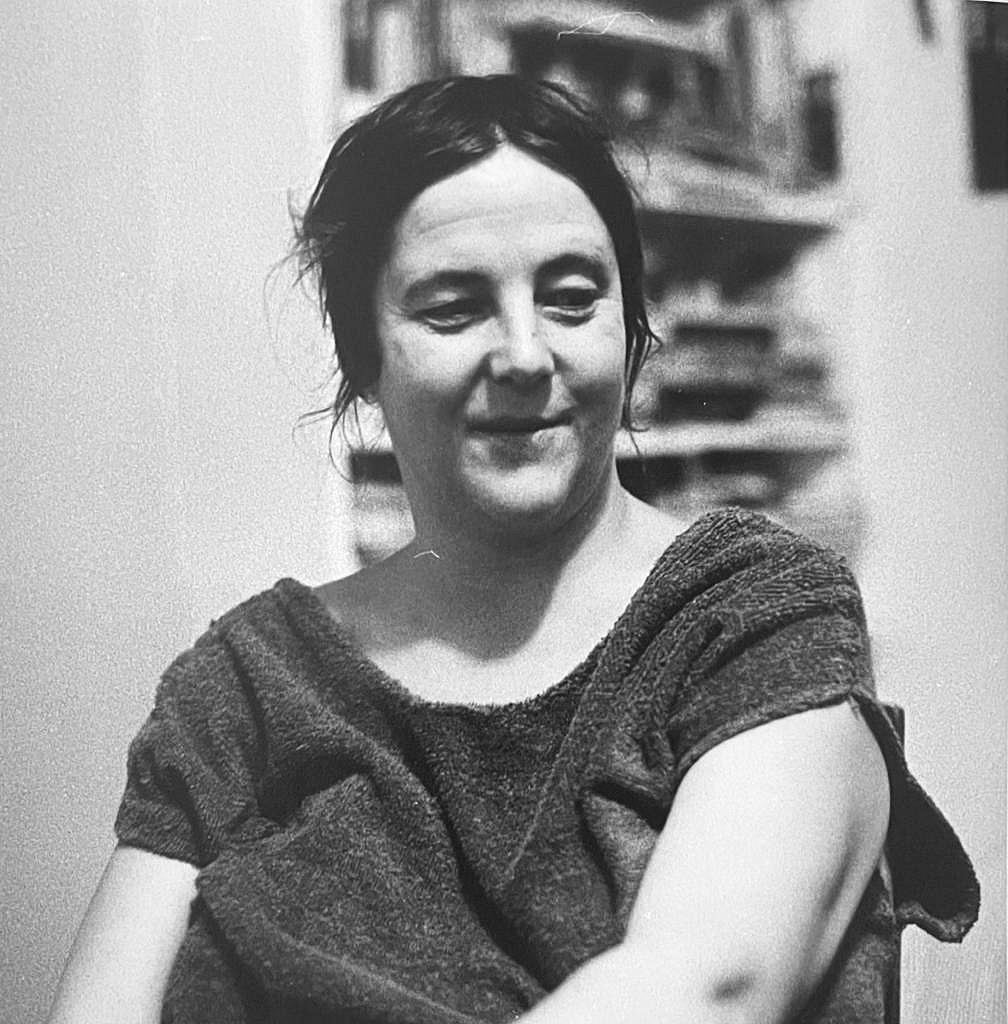
Shortly after college, she made her primary residence in Florence, Italy, where she remained for over three decades.
During those years, she became an important figure in the New York art scene, collaborating on film and theater projects around the world – from France to Italy to Iran – with Robert Wilson, Red Grooms, Mimi Gross, Rudy Burckhardt, Jim Neu, Charles Ludlam, Piero Tellini, and Stefan Brecht.
Shortly after the 1969 Woodstock Music Festival in upstate New York, she acquired the artist loft above her friends Red Grooms and Mimi Gross in Manhattan’s Little Italy. That became her home-away-from-home when she was not in Florence.
Inspired by the exuberant popular flood unleashed by former Salesian priest Jean-Bertrand Aristide’s accession to Haiti’s presidency in February 1991, she teamed up with co-directors Rudi Stern, Babeth, and Hart Perry to document the artistic and musical explosion that the political revolution ignited. But when their 16mm film crew arrived in Port-au-Prince in October 1991, they instead found a nation disoriented, seething, and roiled after a bloody Sep. 30, 1991 military coup d’état. The crew made two more perilous shoots during the next turbulent months, with the centerpiece being the human rights delegation headed by former U.S. Attorney General Ramsey Clark in late December 1991. The result was the feature documentary “Killing the Dream” (1992), which was presented by Academy Award-winning director Jonathan Demme and aired nationally on PBS on the coup’s one year anniversary. Over the next few years, the film was shown to great acclaim around Haiti and the world.
Keke then focused on producing a more contemplative three-hour film on Haitian history and culture, with the three-year coup as a backdrop, featuring Haitian poet Félix Morisseau-Leroy, intellectual Noam Chomsky, musician Richard Morse, and militants of the revolutionary National Popular Assembly (APN) and other anti-putsch fighters. She kept the title of her signature work in Kreyòl: “Rezistans” (1997).
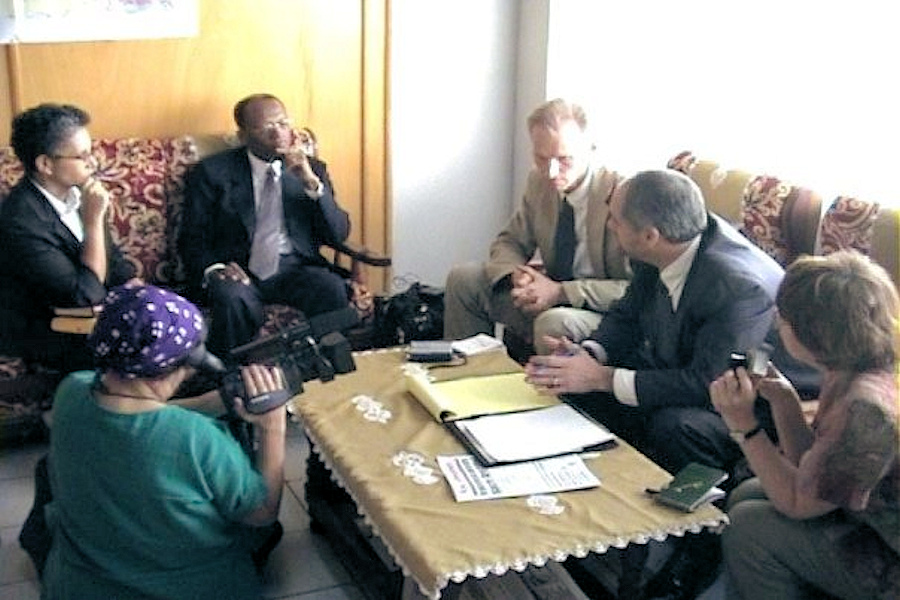
“She was such a force of nature,” commented director and cinematographer Jerry Risius, who had occasion to work with her on many shoots.
In 1994, working with Little Italy friends Peter Eves and Gina Cunningham, she completed the overhaul of an old Miami Beach flophouse which became the world-famous restaurant Tap Tap, whose walls were covered with spectacular giant murals painted by Little Haiti’s foremost artists.
The venue, a tribute to Haitian cuisine and culture, became a sensation, frequented not just by Miami’s working-class Haitians, from cab drivers to ditch diggers, but also by Miami’s celebrity royalty, where a constant stream of famous models, actors, musicians, and artists could be spotted dining on tasso, lanbi, griyo, and lobster or grouper. Tap Tap was frequently featured by cable televison culinary shows and used as a background for fashion shoots.
After 2001, Haiti’s famous protest singer Manno Charlemagne moved into an apartment upstairs and would perform with a band every Thursday and Saturday night, sometimes into the wee hours of the morning.
Artist Rara Kuyu, whose talent had come to Keke’s attention when he lived near Port-au-Prince’s Oloffson Hotel, became an artist-in-residence at the restaurant, painting not only its tables, chairs, lamp fixtures, and air ducts, but the tap-tap (covered pickup truck) that often sat parked outside.
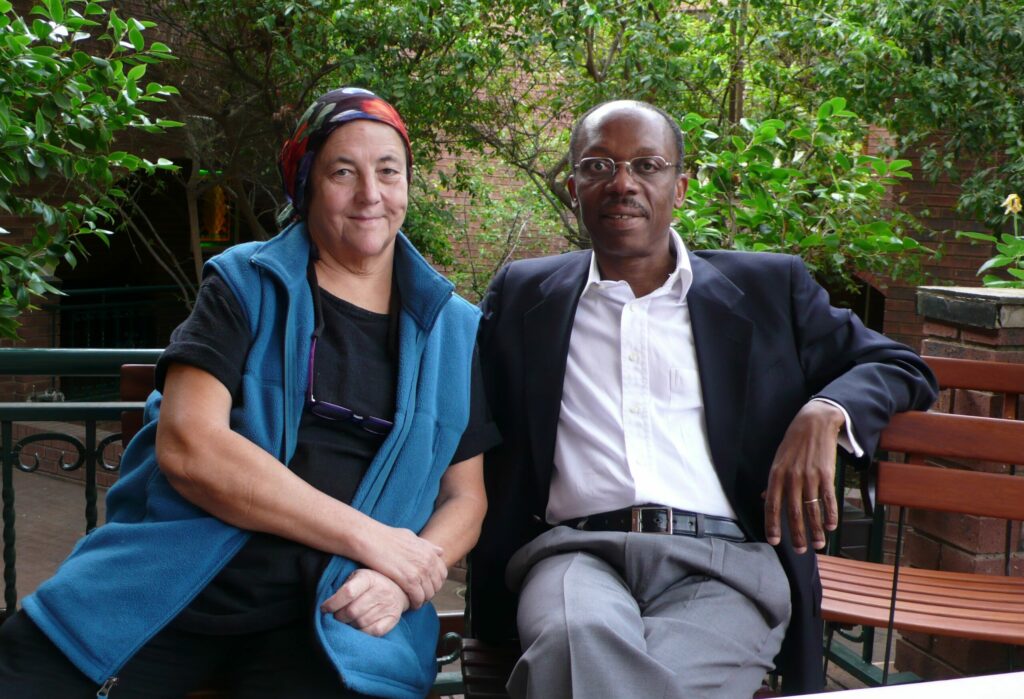
Keke also sponsored other artists such as Félix Morisseau Leroy, Martha Jean-Claude, and Annette “Sò An” Auguste, for all of whom she produced cassettes and CDs. Working primarily with the late Ronald “Aboudja” Derenencourt, she also produced a series of vodou music CDs entitled “Traditional Music of Haiti.”
Kean developed a special relationship with Martha Jean-Claude’s son, musician Richard Mirabal, founding together the Martha Jean-Claude Foundation, which sponsored a publication, CDs, delegations, concerts, and conferences to foster and deepen friendship and cultural ties between Cuba and Haiti.
Keke also discovered Haitian vodou flag artist Myrlande Constant, whose work was recently featured in a major exhibition at UCLA’s Fowler Center in Los Angeles. Kean recognized her great talent long before the rest of the art world.
Her last completed film, Caution: A Meditation (2002), was done with Skylight Pictures editor and producer Peter Kinoy. She called it, on the DVD’s blurb, “a poetic, visual, and musical meditation on 11 September 2001 as a day that changed world history and possibly the future of humanity.”
Working closely with filmmaker David Belle, Keke also played a seminal role in helping to launch the Jacmel Film Festival, held from 2004-2006, as well as the ensuing Cine Institute and Artists Institute, which survive to this day. She also ran the non-profit film company Crowing Rooster Arts with Belle.
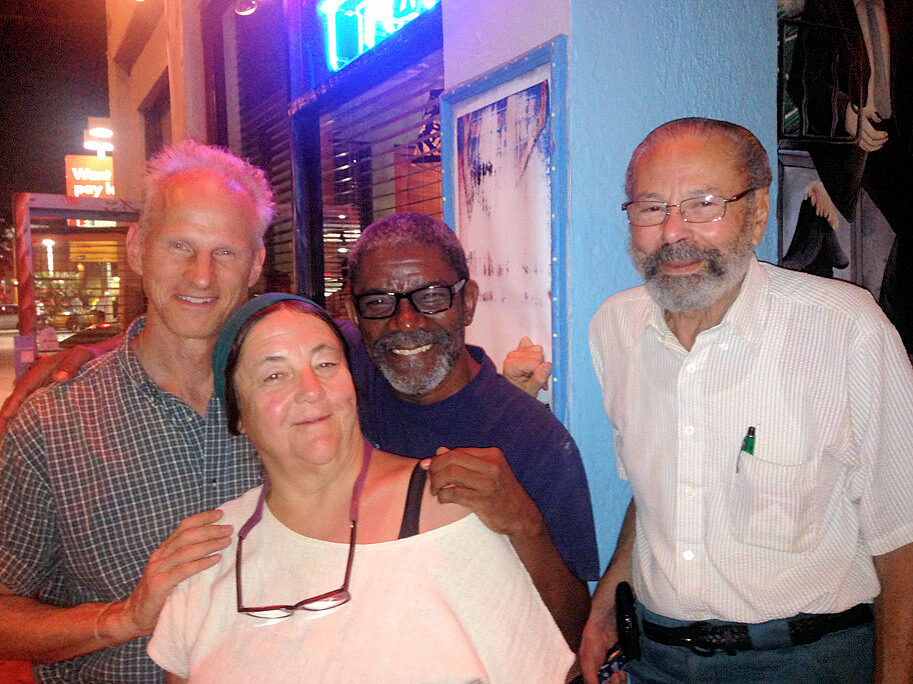
Jeb Sprague.
Kean was a strong supporter of independent Haitian journalism, supporting the weekly newspapers Haïti Progrès and later Haïti Liberté. In 2022, she also helped Haïti Liberté and Uncaptured Media produce the three-part video series, Another Vision: Inside Haiti’s Uprising, available on YouTube.
Keke was also a woman of action. She attended many demonstrations, seminars, and conferences on Haiti, Cuba, the Dominican Republic, and other causes, but also was ready to go beyond mere activism.
In February 2004, a U.S. Navy SEAL team kidnapped President Aristide from his home in Haiti and flew him into exile in the Central African Republic (CAR). Journalist Kim Ives, then working at the weekly Haïti Progrès, pulled together a delegation including lawyer Brian Concannon and activists Sara Flounders and Johnny Stevens to visit Aristide, which Kean accompanied, filmed, and largely underwrote. The delegation succeeded in getting Aristide out of house arrest and before the cameras of his first post-coup press conference.
On the heels of that delegation, Kean then teamed up with Aristide’s lawyer, Ira Kurzban, to rent a private jet to fly to CAR with Congresswoman Maxine Waters, Jamaican parliamentarian Sharon Hay-Webster, journalist Amy Goodman, and others to bring Aristide back to Jamaica, where he spent three months, before passing the rest of his seven-year exile in South Africa as a well-treated government guest.
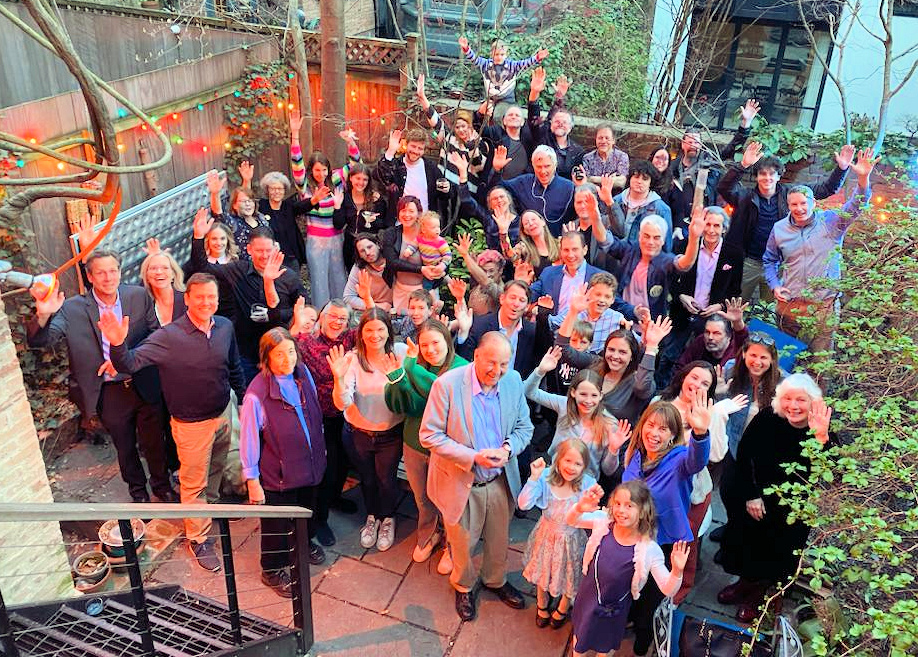
Kean and Kurzban again returned from Africa to the Western Hemisphere on a private jet with Aristide – this time to Haiti – on Mar. 18, 2011. Joined again by Goodman, as well as actor Danny Glover, the delegation delivered the former president and his wife Mildred from their long exile to a cheering multitude which accompanied them back to Aristide’s home in Tabarre, a Port-au-Prince suburb.
Above all else, Keke was a connoisseur of art, food, literature, and films. An avid reader and world traveler, she had vast knowledge and a sharp intellect but always remained modest, retiring, and non-judgmental.
Her mother, Elizabeth Howard Kean, was a descendant of Peter Stuyvesant, the last director-general of the Dutch colony New Netherland until the British wrested it away from Holland in 1664 to become New York City. Her father was Robert Kean, a prominent Republican congressman from New Jersey from 1939 to 1959, descended from John Winthrop, the English Puritan lawyer who was a founder of the Massachusetts Bay Colony. She had five older siblings, two of whom survive her: sister Rose K. Lansbury of New York City, and brother Thomas H. Kean of Bedminster, NJ, who served as New Jersey’s governor from 1982 to 1990 and Drew University’s president from 1990 until 2005.
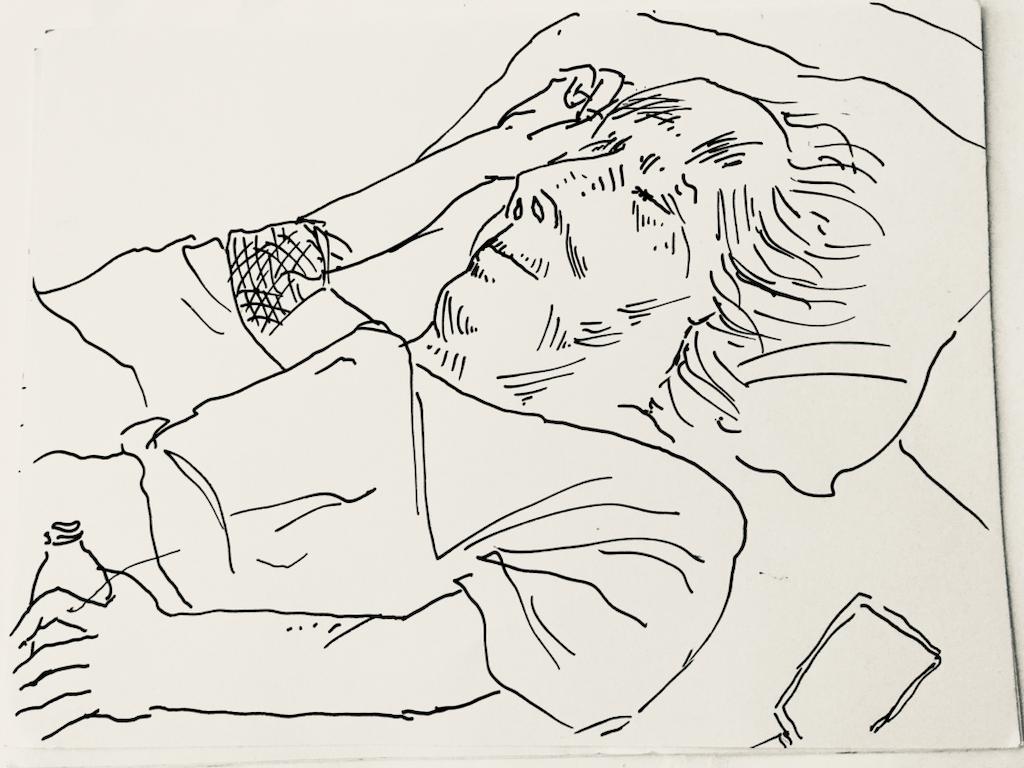
She is also survived by scores of nieces and nephews, several of whom, along with close colleagues and friends, showered her with love and care in her final days of hospice in her Little Italy loft.
Her passing leaves a giant void in the Haitian cultural and liberation movements, among her many friends in Italy and the New York art community, as well as in the hearts of anyone who had the privilege of working closely with her on any project.
“She played a critical role at a critical moment in Haitian history to support our struggle for justice and national liberation,” said Haïti Liberté’s director, Berthony Dupont.
A viewing and funeral will be held on Sat., Aug. 5, 2023 from 12:00 p.m. to 3 p.m. in the heart of the Haitian community at the Guarino Funeral Home on Flatlands Ave. in Brooklyn, NY. Further memorials to be held in Manhattan and Miami will be announced soon.


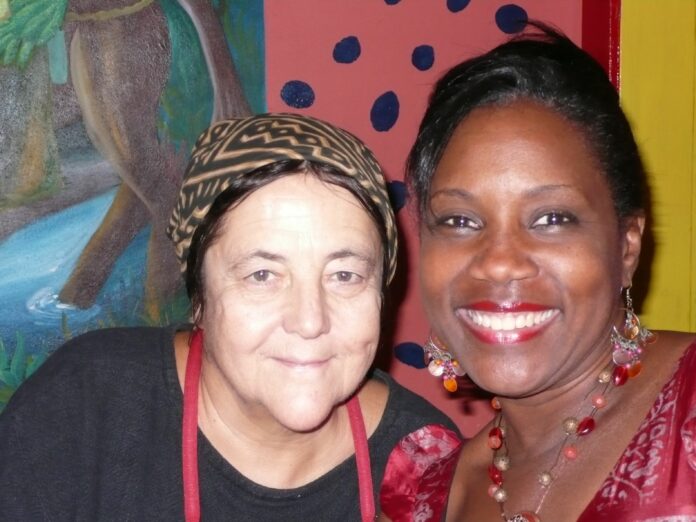









[…] Katharine Kean, “Keke,” has Died at 84 Haiti Liberte […]
Thanks for this revealing and full obit that places Katharine Kean in her appropriate spot of importance in recent Haitian history. It’s a loss for Haiti.
Thanks, Amy. She always admired your work.
[…] (English) […]